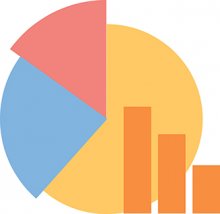By the Numbers - Apr. 13, 2015
18.9%
The percentage of 186,460 Iraq and Afghanistan veterans with a PTSD diagnosis between 2007 and 2012 who received antipsychotic medication, according to a recent article in The Journal of Clinical Psychiatry -- Antipsychotic prescriptions in Iraq and Afghanistan veterans with posttraumatic stress disorder in Department of Veterans Affairs healthcare, 2007-2012.
61.2% of this group received psychiatric medications exclusive of antipsychotics and 19.9% received no psychiatric medications at all, according to the authors of this study, who indicated that "Increased likelihood of antipsychotic prescribing was associated with suicidal ideation...and comorbid psychiatric diagnoses including personality disorder..., drug use disorder..., and alcohol use disorder...." Male sex and enlisted rank "were independently associated with antipsychotic use," according to the researchers, who offered a caveat:
A substantial minority of Iraq and Afghanistan veterans diagnosed with PTSD received antipsychotics. Male veterans, those of enlisted rank, and those with suicidal ideation and psychiatric comorbidities were more likely to receive antipsychotics than other types of psychiatric medications. Providers should be cautious about antipsychotic use, given their known metabolic risks and questionable benefits for PTSD.
18.9%
The percentage of 186,460 Iraq and Afghanistan veterans with a PTSD diagnosis between 2007 and 2012 who received antipsychotic medication, according to a recent article in The Journal of Clinical Psychiatry -- Antipsychotic prescriptions in Iraq and Afghanistan veterans with posttraumatic stress disorder in Department of Veterans Affairs healthcare, 2007-2012.
61.2% of this group received psychiatric medications exclusive of antipsychotics and 19.9% received no psychiatric medications at all, according to the authors of this study, who indicated that "Increased likelihood of antipsychotic prescribing was associated with suicidal ideation...and comorbid psychiatric diagnoses including personality disorder..., drug use disorder..., and alcohol use disorder...." Male sex and enlisted rank "were independently associated with antipsychotic use," according to the researchers, who offered a caveat:
A substantial minority of Iraq and Afghanistan veterans diagnosed with PTSD received antipsychotics. Male veterans, those of enlisted rank, and those with suicidal ideation and psychiatric comorbidities were more likely to receive antipsychotics than other types of psychiatric medications. Providers should be cautious about antipsychotic use, given their known metabolic risks and questionable benefits for PTSD.

